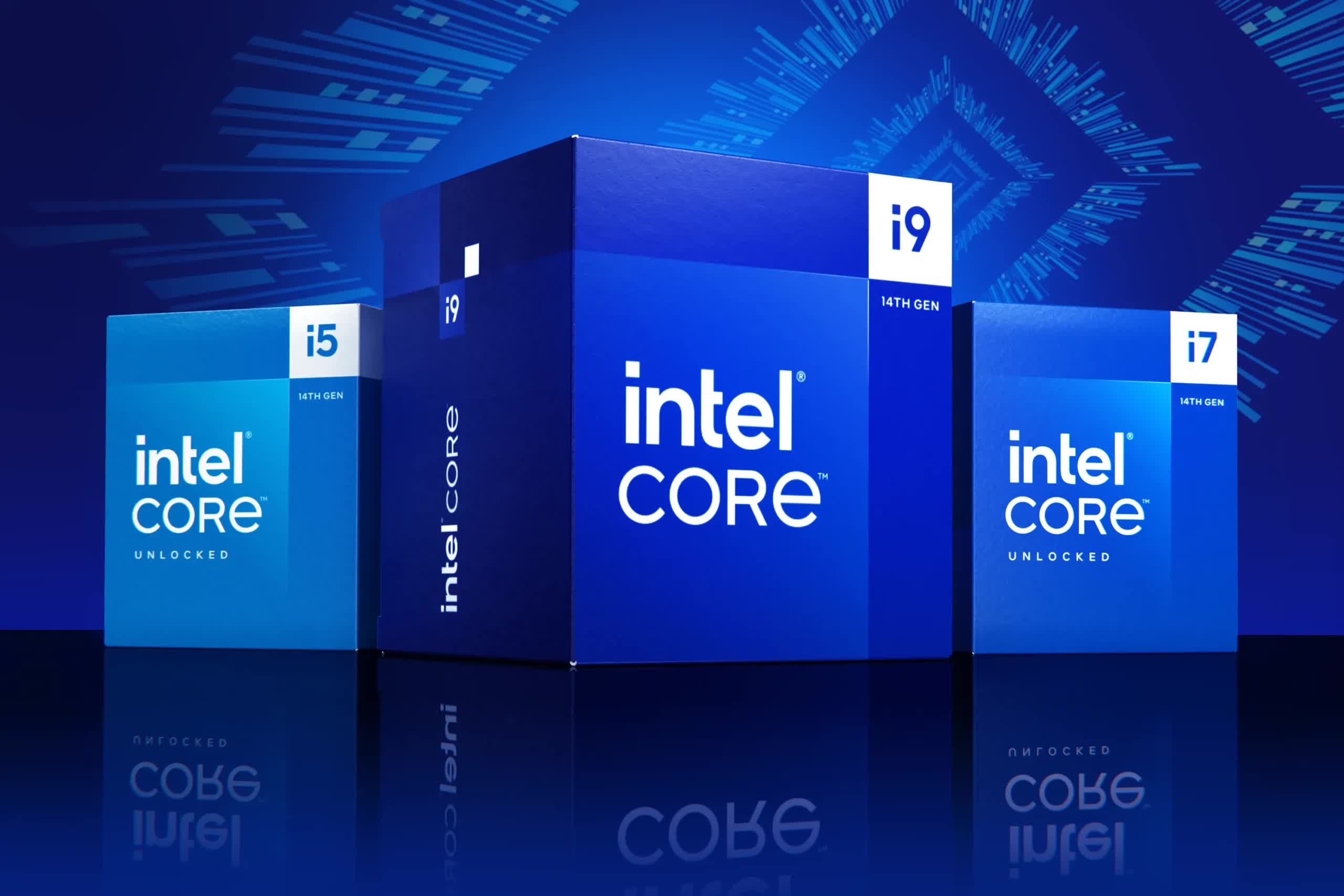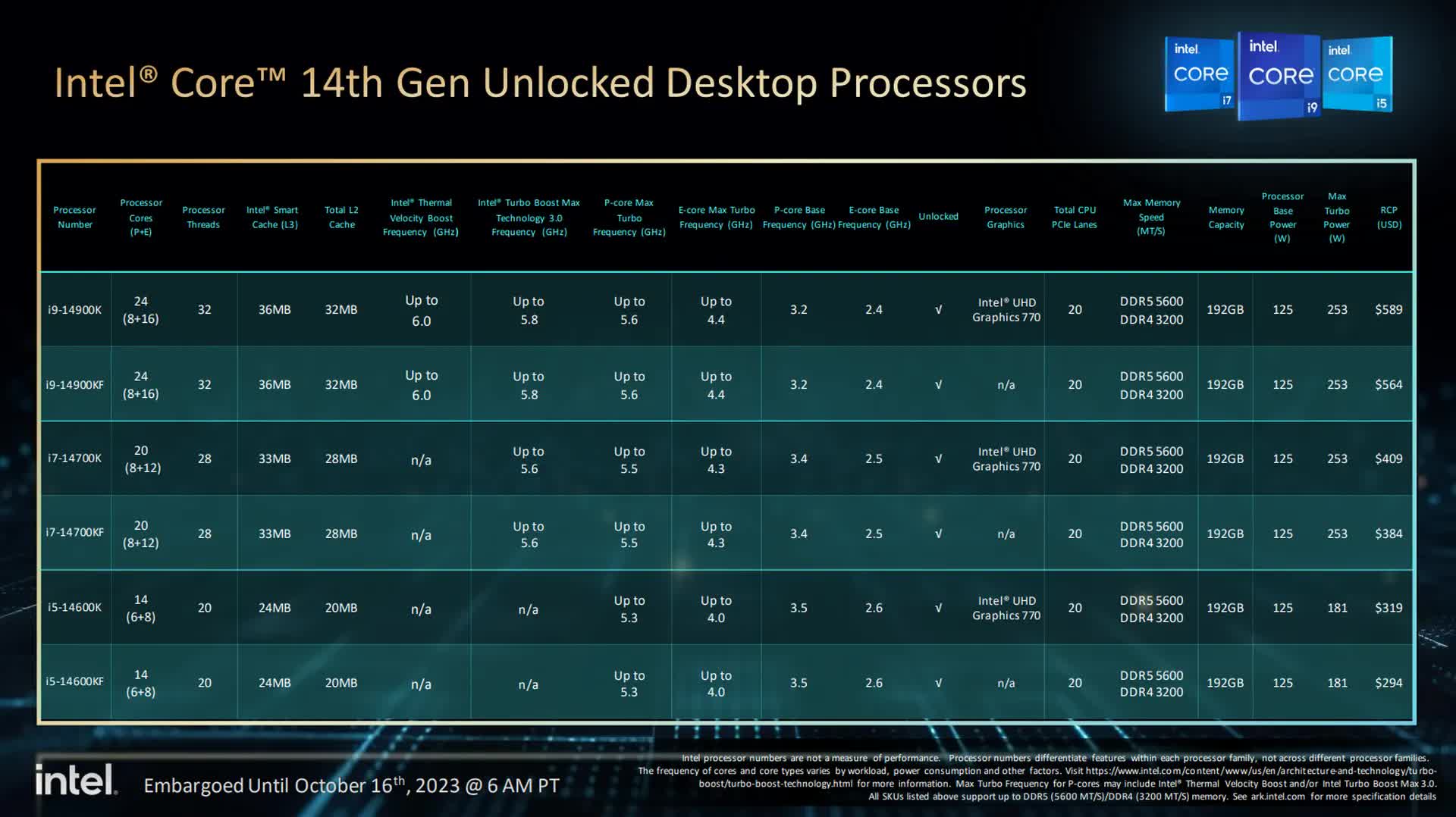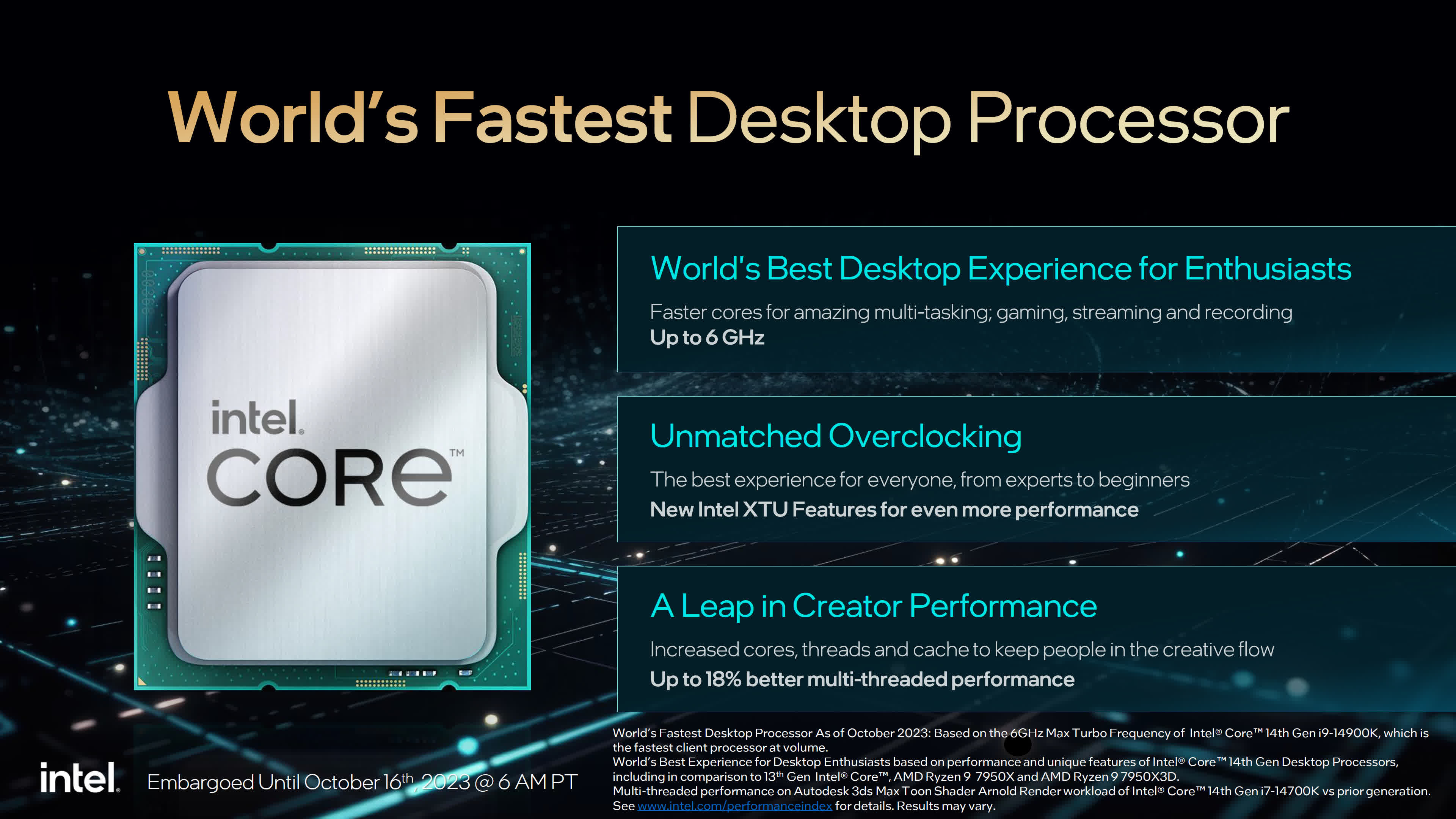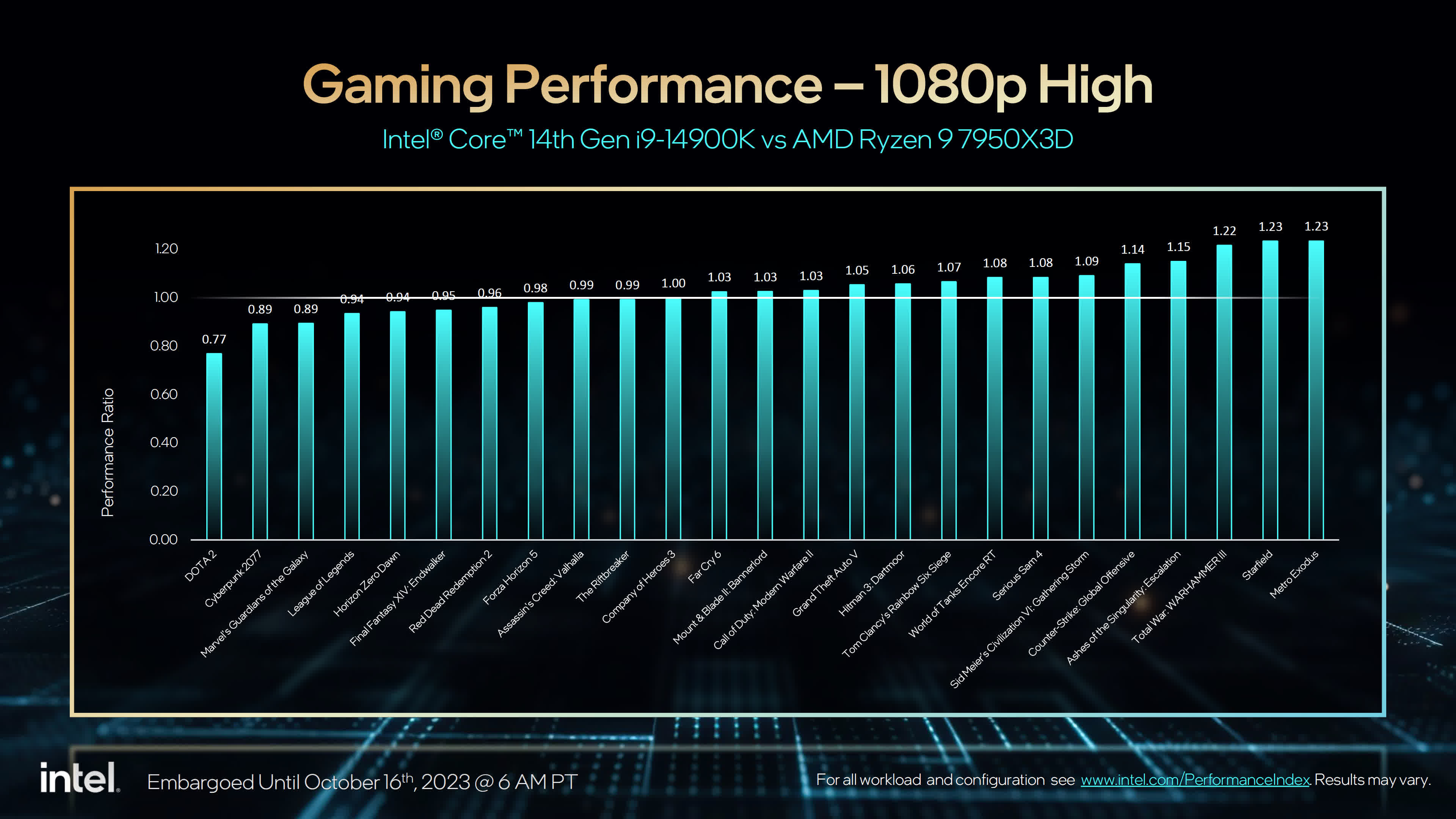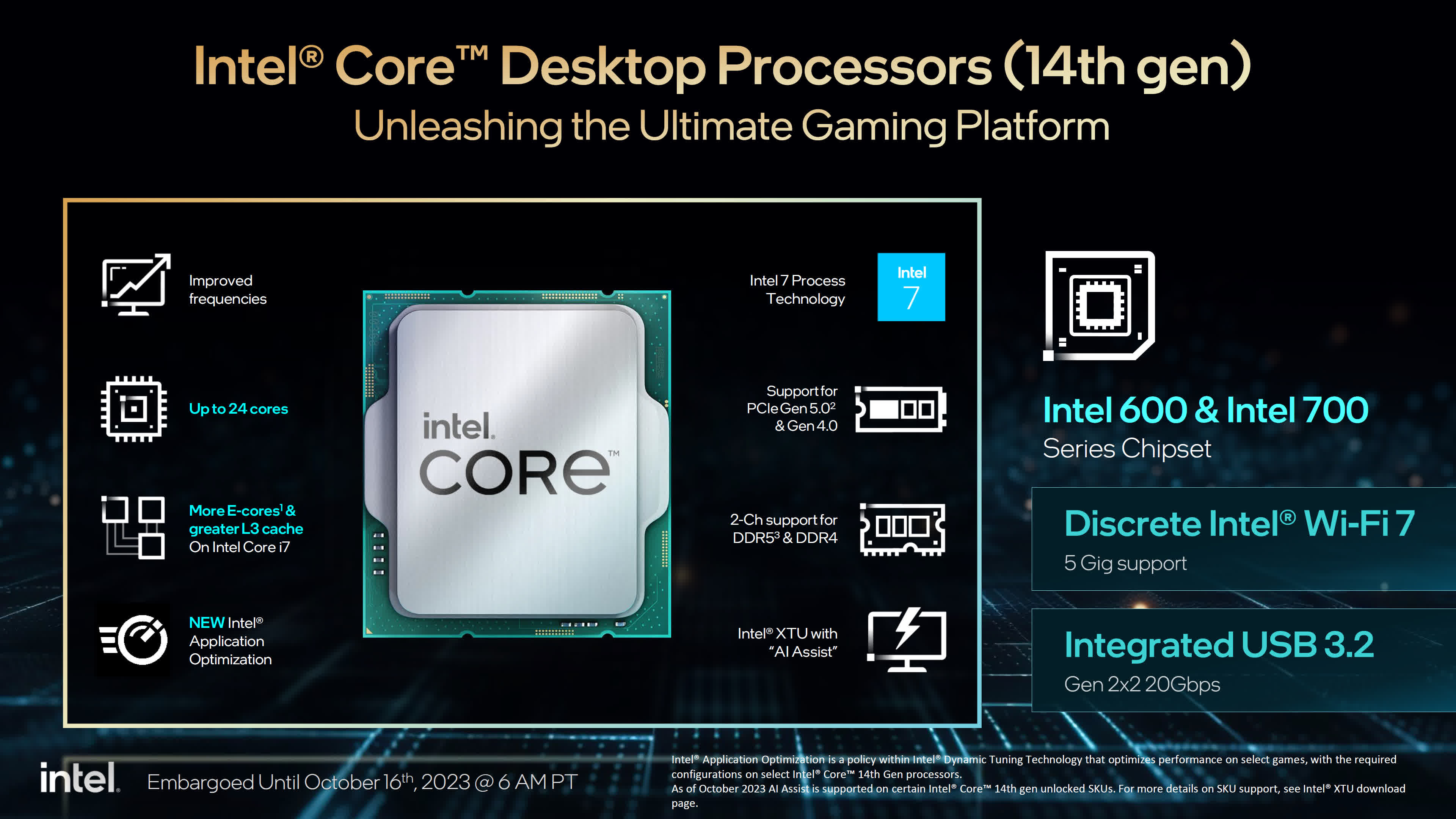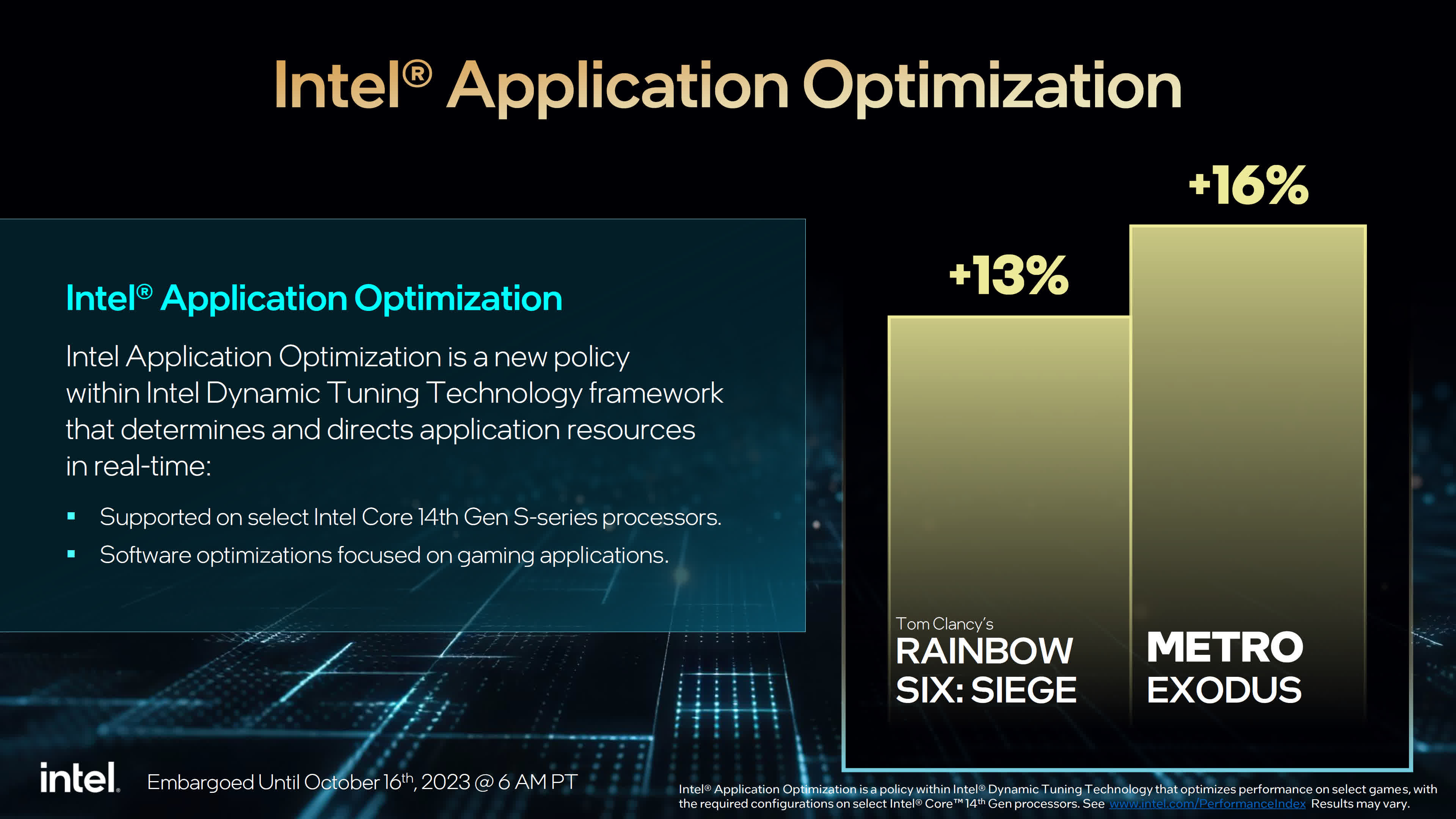What just happened? After months of rumors and leaks, Intel has finally announced the 14th-gen Raptor Lake Refresh family of processors, starting with the Core i9-14900K, Core i7-14700K, and Core i5-14600K. The big takeaway is that contrary to previous claims, the chips will mostly be the same price as their predecessors when they launch on October 17.
Rumors that the Raptor Lake Refresh CPUs could cost up to 15% more than their 13th-gen counterparts have thankfully been proved wrong. The Core i9-14900K comes in at $589 with the KF variant at $564. The Core i7-14700K is $409 or $384 if you opt for the KF model without integrated graphics, and the Core i5-14600K is $319 or $294 for the KF chip.
As previously reported, the Core i9-14900K can boost to 6 GHz, making it the "fastest desktop processor at volume," according to Intel; the special-edition 13900KS could pass 6 GHz at stock, but it didn't ship at volume.
Intel is positioning the 24-core (8 performance, 16 efficiency) / 32-thread Core i9-14900K as a direct competitor to the AMD Ryzen 9 7950X3D, as shown by a recently leaked set of (Intel picked) benchmarks. Team Blue only comes out ahead by a slight margin in games at 1080p: a 2.5% lead overall, though it says the CPU offers up to 54% faster performance in creator workflows.
What has turned out to be accurate is the rumor that these 14th-gen chips don't offer a massive performance uplift over their 13th-gen counterparts, but Intel would likely argue that this is because they're an optimized and refined refresh. Team Blue says to expect "mid-to-upper single-digit percentage" performance improvements compared to last-gen Raptor Lake products.
The Core i7-14700K (8P + 12E Cores / 28 threads) is the only one of the three CPUs to see an upgrade in the number of cores (four extra E cores) over its predecessor, along with extra L2/L3 cache (61MB vs. 54MB). Out of all the new chips, this one could be of most interest to those looking at upgrading.
Finally, there's the Core i5-14600K. Its 14 cores are comprised of six P cores and eight E cores (20 threads). It can boost to 5.3 GHz.
Elsewhere, Intel says its new AI Assist program inside the popular XTU tuning utility will use machine learning to offer custom one-click overclocking settings for the Core i9 models. There's also a new Application Optimization (APO) program that detects games and optimizes the CPU for specific titles.
Raptor Lake Refresh uses the LGA 1700 socket and will work in both 600- and 700-series motherboards. They support Wi-Fi 7, Bluetooth 5.4, DDR5 5600, and DDR4 3200. The chips will be available from retailers and system builders tomorrow (October 17), when our review will be live.
https://www.techspot.com/news/100503-intel-announces-14th-gen-core-i9-14900k-core.html
